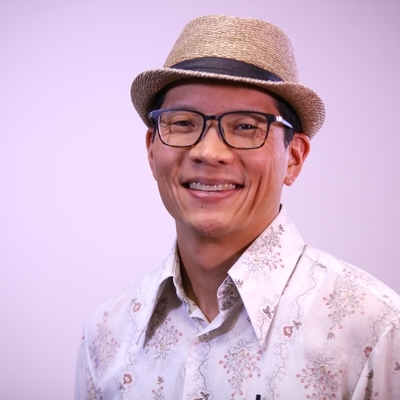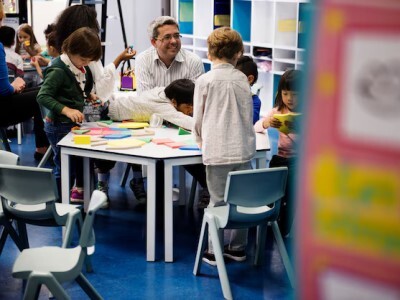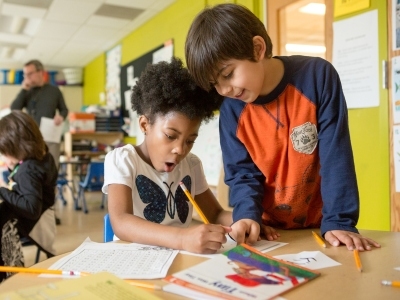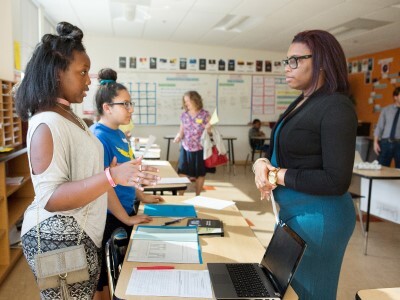The Equity Imperative: Project-Based Distance Learning
Topics
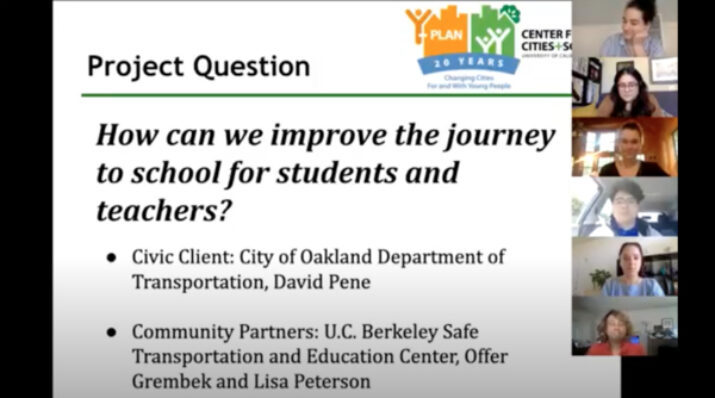
We’ve all had the experience of truly purposeful, authentic learning and know how valuable it is. Educators are taking the best of what we know about learning, student support, effective instruction, and interpersonal skill-building to completely reimagine schools so that students experience that kind of purposeful learning all day, every day.
The world around these students shut down but their authentic project on safe transportation continued, to great success! Here's how PBL went virtual at Oakland High School.
One hallmark of project-based learning (PBL) is authenticity. In PBL, students work on projects that have meaning to people other than the teacher. They embark on real-world tasks or ones modeled after them. They use tools and technologies that professionals use. They address issues in their community.
At the same time, something important happens to the relationship between teacher and student. With students engaged in groups to complete a project, the teachers’ role shifts away from the normal hierarchy in the classroom. When teachers assume power and authority as lecturers and experts, they stand apart from their students. When students work on projects, teachers sit next to students, becoming their guides, facilitators, and mentors.
Both of these factors—authenticity and relationships—are critical for the success of students whom the current system was not designed to serve—English language learners, poor students, students of color, to name a few. This is one reason why we strongly emphasize PBL as well as performance assessments in Oakland Unified School District.
Any sane discussion of school reopening in the fall includes a recognition that distance learning will play a role. Moving instruction online, however, could revert us back to traditional teaching forms like lecturing because in moments of crisis we tend to fall back on what’s familiar. Plus, we don’t have good models of PBL in a virtual context. Such a regression would decrease the meaning marginalized students find in school assignments and the connection and closeness students feel toward their teachers.
So, how do we bring PBL online and preserve the elements that make it powerful in person?
One project in Oakland may give us some clues as to what this could look like. Students and teachers partnered with Y-PLAN—a local initiative based out of UC Berkeley’s Center for Cities and Schools. A typical Y-PLAN project kicks off with a community-based client presenting a real problem to students. Students then conduct multiple forms of research including surveys, readings, and field observations and present their recommendations back to the client.
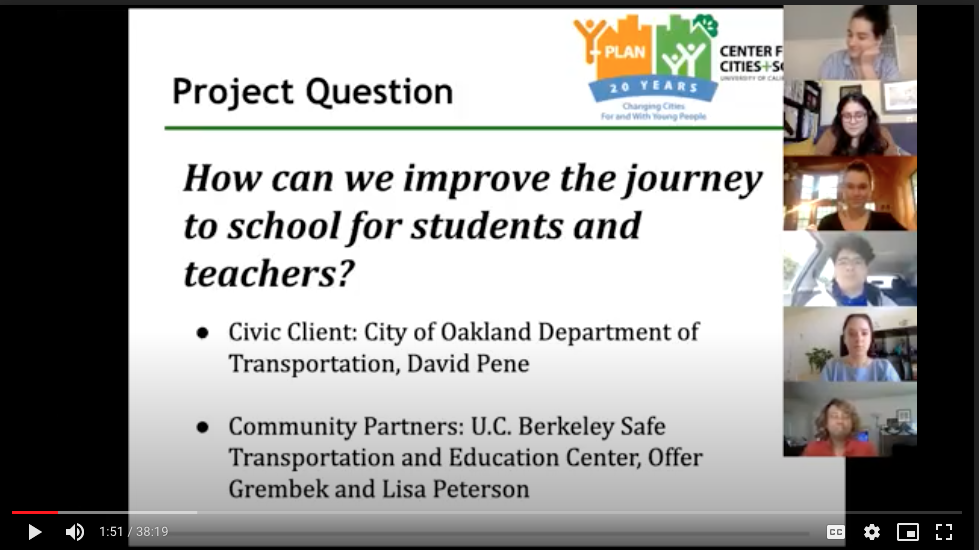
Courtesy of Young Whan Choi
The role of the client is key to building authenticity. Through their genuine interest in student perspectives, these community members communicate that this is not just an exercise. At Oakland High School in the Project Lead the Way pathway, teachers Molly Perlmutter, Emily Vaughan, and Diane Johnson and sixty-one of their students worked with Y-PLAN to address safety issues related to commuting to school, and the Oakland Department of Transportation served as the client. Guided by the question, “How can we improve the journey to school for students and teachers?”, students researched solutions to the logistical challenge of getting 1,600 people onto and off of campus safely every day.
As part of their research, students observed the areas around campus, noting instances of jay-walking and illegal U-turns as well as the narrow, cracked sidewalks with few resting areas and numerous potholes in the road. Students also conducted interviews and a community survey, which raised many issues, most prominently too much traffic during drop off and pick up and the lack of crosswalks at intersections.
And then in the midst of this project, COVID-19 cases surged in the U.S. School campuses here in the bay area and across the country were closed. School assignments seemed unimportant next to questions of whether rent could be paid, who was going to watch the little ones, and where to get food. Teachers cancelled or modified assignments. Districts adopted credit/no credit grading policies. The University of California temporarily dropped the ACT and SAT for admissions. Yet, the Y-PLAN project continued in full force.
Why? Because their research mattered. For some, it was having a relevant question. As senior Glen Fitton expressed,
“I wanted to see the project through because I hold transportation issues as something I really care about. I have taken [public] transportation my whole life.”
For other students and teachers, they knew that there was a client who wanted to hear their thoughts. So, while sheltering in place, students met virtually in teams to prepare. And on Friday, April 24, roughly thirty students hopped online to deliver an intricately coordinated and highly professional presentation to members of the Oakland Department of Transportation, Berkeley SafeTREC, Y-PLAN, and Oakland High’s principal, assistant principal, and teachers.
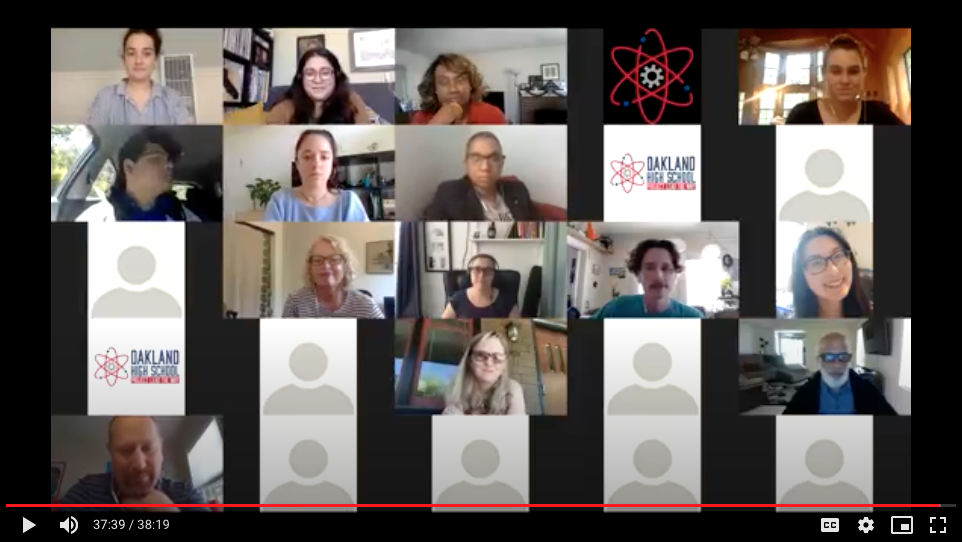
Courtesy of Young Whan Choi
Their ultimate proposal was entitled “a competent, convenient, commute (CCC).” Some of their short-term recommendations included: hosting a community panel at the school with diverse participation to provide feedback to the bus system, creating designated zones and times for drop off in order to address the issues related to traffic, and recruiting volunteer crossing guards. In response, David Pene from the Department of Transportation said, “I’d like to get these slides so I can share them internally and do what we can to bring these recommendations into reality.”
Noticeably, the teachers spoke rarely but beamed frequently during the forty minutes. The hard work had taken place behind the scenes. Fitton cited the importance of lots of support from his three teachers, including emails and Zoom calls. Unlike some advocates of online learning who see technology replacing teachers, PBL demands a high touch from professional educators, whether in person or at a distance. The rewards of all the teachers’ work was obvious in their proud smiles.
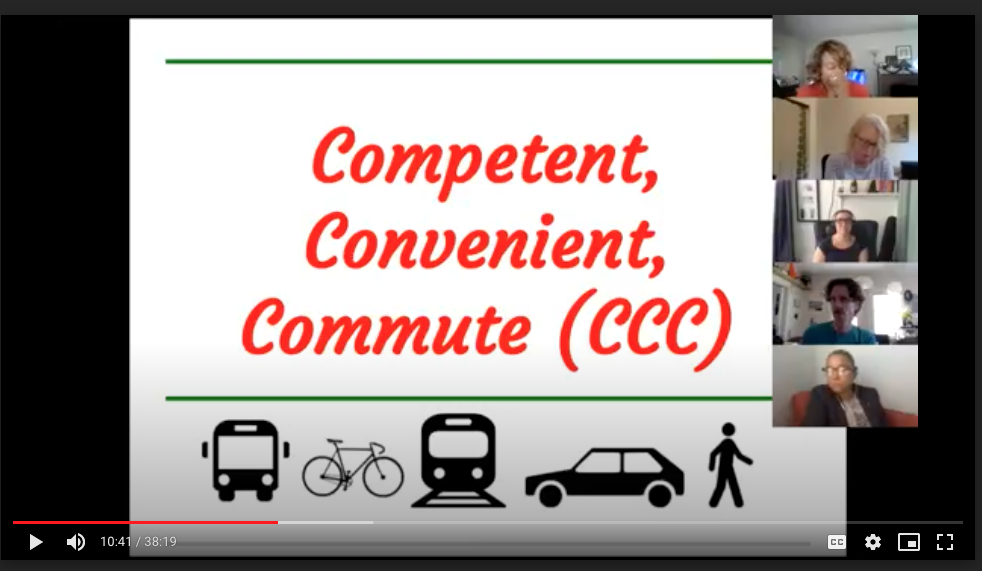
Courtesy of Young Whan Choi
The partnership with Y-PLAN was critical to the success of PBL in the distance learning space. But, this does not mean that it’s not possible to replicate in other parts of the world. There are key characteristics of the partnership that can guide us in thinking about how to support active, engaged learning for students in a distance-learning context.
1. Having trust with partners. Y-PLAN has been with OUSD for twenty years. They have developed long-term relationships with our schools and pathways.
2. Authentic questions. Authenticity begins with a relevant question, and then there need to be people who care about the answer to the question, like the Oakland Department of Transportation, who show up throughout the project with a willingness to hear students’ perspectives.
3. Professional practices. Students advocated for curb striping, crosswalk lights on the road, and pedestrian islands. Berkeley SafeTREC was able to support students in their understanding of the issues and practices related to the field of transportation.
As we work with teachers to get up to speed on different ways to connect with students during distance learning, our conversations must go beyond what platform to use and address questions of pedagogy. PBL is a powerful pedagogy for addressing the needs of marginalized students for authenticity and relationships, whether in person or online. And the example of Y-PLAN in Oakland during shelter in place shows us what is still possible.

